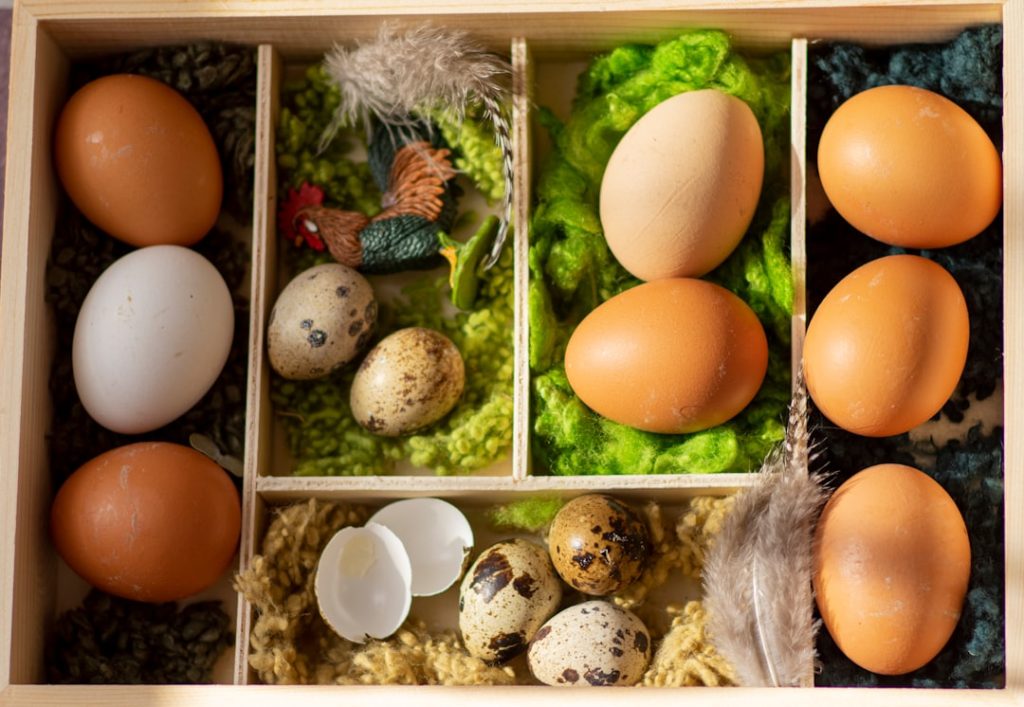Free range chickens are a key component of sustainable and ethical farming practices. These birds are allowed to roam freely and forage for food, enabling them to engage in natural behaviors and maintain better health. This approach benefits both the chickens and the quality of their products.
Free range chickens typically have access to a more varied diet, which can lead to eggs and meat with higher levels of nutrients like omega-3 fatty acids and vitamins. The freedom to roam also reduces stress and aggression among the birds, improving their overall welfare. In sustainable agriculture, free range chickens serve multiple purposes.
Their foraging behavior helps control pests and weeds, potentially reducing the need for chemical pesticides. This natural pest control contributes to more environmentally friendly farming practices. Additionally, the scratching and pecking actions of free range chickens can improve soil health by aerating the ground and distributing nutrients.
These benefits highlight the importance of free range chickens in promoting sustainable and ethical farming methods.
Table of Contents
- 1 Creating a Safe and Secure Free Range Environment
- 2 Providing Adequate Shelter and Protection
- 3 Ensuring Access to Fresh Water and Nutritious Feed
- 4 Monitoring and Managing Free Range Behavior
- 5 Implementing Predator Prevention Measures
- 6 Maintaining Health and Wellness for Free Range Chickens
- 7 FAQs
Key Takeaways
- Free range chickens provide numerous benefits including better quality eggs and meat, improved animal welfare, and reduced environmental impact.
- Creating a safe and secure free range environment is essential to protect chickens from predators and ensure their well-being.
- Adequate shelter and protection from harsh weather conditions and predators are crucial for the health and safety of free range chickens.
- Access to fresh water and nutritious feed is essential for the overall health and productivity of free range chickens.
- Monitoring and managing free range behavior is important to ensure the well-being and safety of the chickens, as well as to maintain a productive environment.
Creating a Safe and Secure Free Range Environment
Securing the Perimeter
One of the first steps in creating a safe environment for free range chickens is to ensure that the area is properly fenced to prevent predators from entering. This can be achieved by using sturdy fencing materials such as wire mesh or electric fencing.
Protecting from Predators and the Elements
In addition to fencing, providing adequate shelter is crucial for protecting free range chickens from the elements and predators. This can include a sturdy coop for roosting at night, as well as shelters or trees for protection from extreme weather conditions.
Maintenance and Inspection
It’s important to regularly inspect the fencing and shelters for any signs of damage or weakness, as predators such as foxes, raccoons, and birds of prey can pose a threat to free range chickens. Regular maintenance and inspection can help ensure that the environment remains secure and in good condition, promoting the overall well-being of the chickens.
Providing Adequate Shelter and Protection

When it comes to providing adequate shelter and protection for free range chickens, there are several key considerations to keep in mind. First and foremost, it’s important to provide a secure coop for the chickens to roost in at night. The coop should be well-ventilated, predator-proof, and provide enough space for all of the chickens to comfortably roost.
Additionally, it’s important to provide nesting boxes within the coop where the hens can lay their eggs in a safe and comfortable environment. In addition to the coop, it’s important to provide shelters or trees within the free range area where the chickens can seek protection from extreme weather conditions such as rain, wind, or intense sunlight. These shelters can also provide a safe space for the chickens to escape from potential predators.
Regular maintenance of these shelters is essential to ensure they remain secure and in good condition. By providing adequate shelter and protection, farmers can help ensure the safety and well-being of their free range chickens.
Ensuring Access to Fresh Water and Nutritious Feed
Ensuring that free range chickens have access to fresh water and nutritious feed is essential for their health and well-being. Chickens require a constant supply of clean water to stay hydrated, especially during hot weather or when laying eggs. It’s important to regularly check water sources to ensure they are clean and free from contaminants.
Additionally, providing access to nutritious feed is crucial for meeting the dietary needs of free range chickens. This can include a balanced diet of grains, seeds, fruits, vegetables, and insects. In addition to providing nutritious feed, allowing free range chickens to forage for their own food can contribute to a more diverse and natural diet.
Foraging allows chickens to consume insects, seeds, and plants that are rich in essential nutrients. This can result in eggs and meat that are higher in quality and nutritional value. By ensuring access to fresh water and nutritious feed, farmers can help promote the health and productivity of their free range chickens.
Monitoring and Managing Free Range Behavior
Monitoring and managing the behavior of free range chickens is important for ensuring their well-being and productivity. By observing their behavior, farmers can identify any potential issues or health concerns early on. This can include monitoring their activity levels, social interactions, feeding behavior, and overall appearance.
Additionally, it’s important to provide enrichment activities within the free range area to encourage natural behaviors such as scratching, pecking, and dust bathing. Furthermore, managing free range behavior also involves addressing any potential conflicts or aggression within the flock. This can include separating aggressive birds or providing enough space and resources to reduce competition among the chickens.
By monitoring and managing free range behavior, farmers can help promote a harmonious environment for their chickens and address any potential issues before they escalate.
Implementing Predator Prevention Measures

Fencing and Barriers
Regular inspections of the fencing are essential to identify any signs of damage or weakness that could compromise its effectiveness. This ensures that the fencing remains a reliable barrier against predators.
Guard Animals and Management Practices
Other predator prevention measures include using guard animals such as dogs or llamas to deter potential predators from approaching the chickens. In addition to physical barriers, it’s essential to implement management practices that reduce the risk of predation. This includes avoiding leaving food sources out in the open that could attract predators, as well as regularly removing any potential hiding spots such as tall grass or brush near the free range area.
Promoting Safety and Well-being
By implementing these predator prevention measures, farmers can help protect their free range chickens from potential threats and promote their overall safety and well-being.
Maintaining Health and Wellness for Free Range Chickens
Maintaining the health and wellness of free range chickens is essential for their overall well-being and productivity. This can include regular health checks to monitor for any signs of illness or injury. It’s important to provide access to veterinary care when needed and administer vaccinations or treatments as recommended by a professional.
Additionally, maintaining a clean and hygienic environment within the free range area can help prevent the spread of disease and parasites. Furthermore, promoting good nutrition is crucial for maintaining the health and wellness of free range chickens. This can include providing a balanced diet of nutritious feed as well as allowing them to forage for their own food.
Additionally, providing access to clean water at all times is essential for keeping chickens hydrated and healthy. By maintaining health and wellness for free range chickens, farmers can help ensure that their birds lead happy, healthy lives while also producing high-quality eggs and meat.
If you’re interested in learning more about how to keep chickens free range, you might also want to check out this article on how to build a chicken coop with a nest box. This article provides valuable information on creating a comfortable and functional living space for your chickens, which is essential for successful free-range poultry keeping.
FAQs
What does it mean to keep chickens free range?
Keeping chickens free range means allowing them to roam and forage in a natural environment, rather than being confined to a small space or cage.
What are the benefits of keeping chickens free range?
Keeping chickens free range allows them to exhibit natural behaviors, such as scratching, dust bathing, and foraging for insects and plants. It also provides them with access to a more varied diet and can lead to healthier, happier chickens.
What are some considerations for keeping chickens free range?
When keeping chickens free range, it’s important to provide them with a secure and predator-proof area to roam, access to fresh water and shelter, and protection from extreme weather conditions. Additionally, it’s important to be mindful of local regulations and ordinances regarding free range chickens.
How can I keep free range chickens safe from predators?
To keep free range chickens safe from predators, it’s important to use secure fencing, provide a safe and secure coop for them to roost in at night, and consider using guard animals such as dogs or llamas to help deter predators.
What should I feed free range chickens?
Free range chickens will forage for a portion of their diet, but it’s important to also provide them with a balanced feed that includes grains, protein, and essential nutrients. Additionally, offering kitchen scraps and access to grit for digestion can be beneficial.
Meet Walter, the feathered-friend fanatic of Florida! Nestled in the sunshine state, Walter struts through life with his feathered companions, clucking his way to happiness. With a coop that’s fancier than a five-star hotel, he’s the Don Juan of the chicken world. When he’s not teaching his hens to do the cha-cha, you’ll find him in a heated debate with his prized rooster, Sir Clucks-a-Lot. Walter’s poultry passion is no yolk; he’s the sunny-side-up guy you never knew you needed in your flock of friends!







